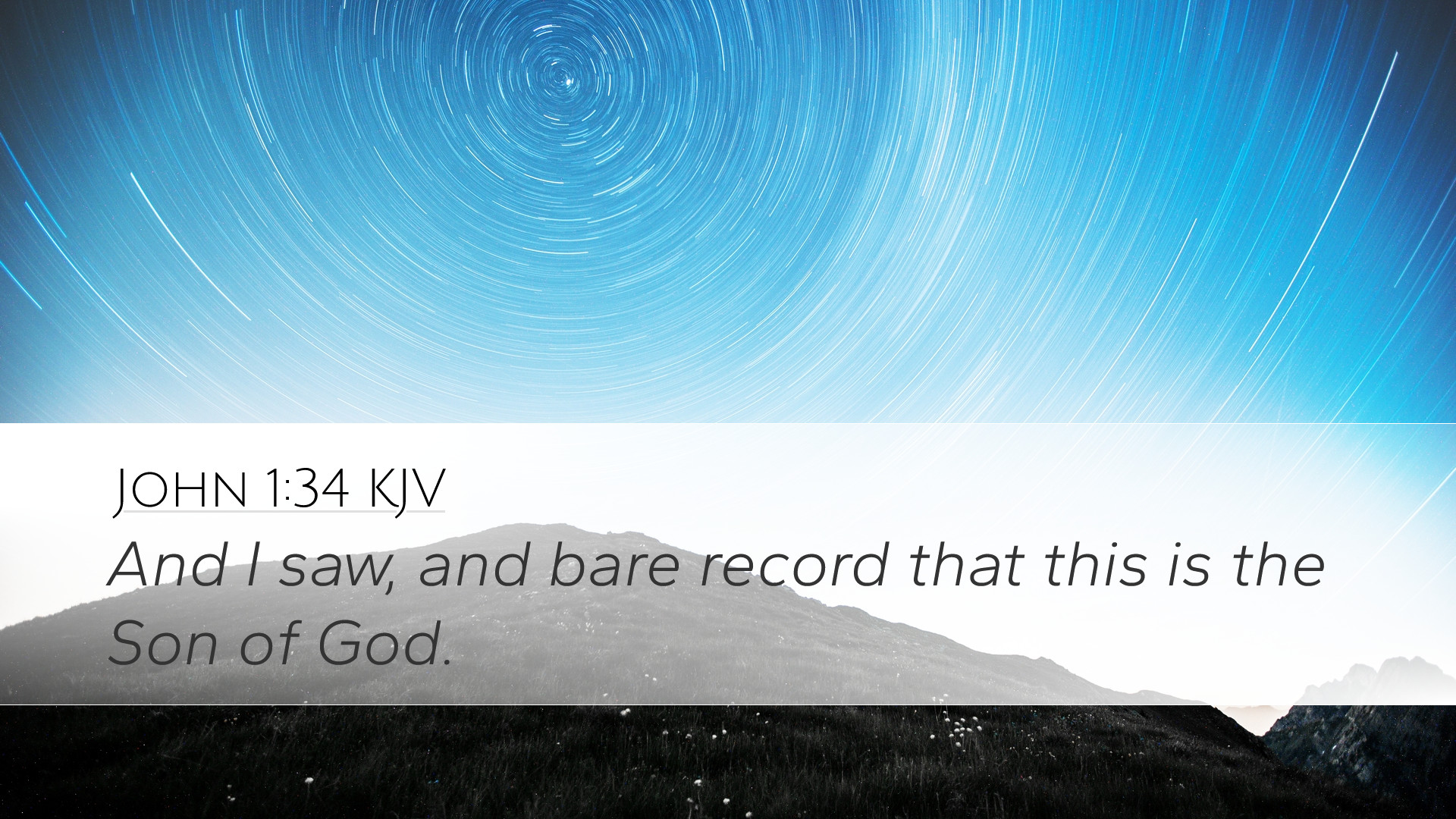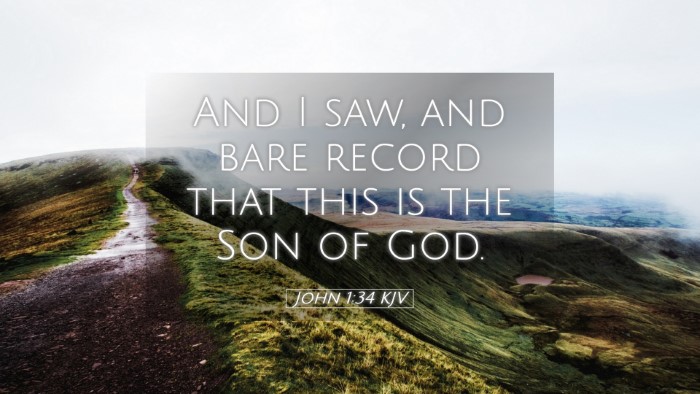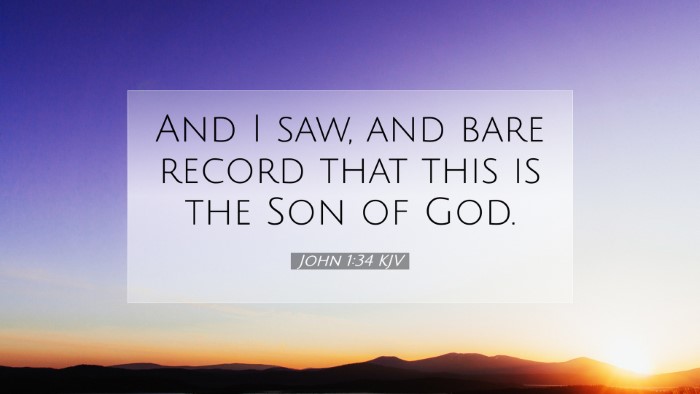Commentary on John 1:34
Verse: "And I have seen and borne witness that this is the Son of God."
Introduction
The testimony of John the Baptist regarding Jesus Christ is pivotal in the Gospel of John. With these words, John illuminates his divine revelation and the identity of Jesus. This commentary explores the depth of this verse, drawing from the insights of notable Public Domain commentaries.
Contextual Overview
This proclamation occurs in the context of John the Baptist's ministry. Prior to this declaration, John identifies himself and clarifies his mission, which is to prepare the way for the Messiah. The phrase "I have seen" underscores the firsthand nature of John's witness, emphasizing his role as a prophet who engages deeply with the divine.
Exegesis of Key Components
1. "I have seen"
Matthew Henry's Commentary elaborates on this phrase, interpreting it as a profound acknowledgment of personal experience. John the Baptist did not merely hear about Jesus; he witnessed the presence of the Divine in the incarnate Son. This seeing refers not only to the physical sight but also to a spiritual enlightenment that his ministry conveys.
2. "borne witness"
Albert Barnes emphasizes the importance of witness in biblical terms. To bear witness implies a responsibility to convey truth. John’s testimony points to his understanding of his prophetic role in affirming Jesus as the awaited Savior. His witness is not only a declaration but an affirmation of his call and purpose.
3. "this is the Son of God"
Adam Clarke offers insight into the significance of this declaration. Recognizing Jesus as the "Son of God" positions Him within the framework of Jewish Messianic expectations. Clarke notes that this statement encapsulates the divine sonship and authority of Christ, essential for understanding His place in both the Jewish and Christian faiths.
Theological Implications
This one verse underscores the doctrine of Christ's divinity. By identifying Jesus as the Son of God, it highlights essential Christian beliefs about the nature of Jesus and His role in salvation history.
1. Affirmation of Christ’s Divinity
Thus, John’s proclamation serves as an early Christian declaration of faith, affirming that Jesus is not just a prophetic figure but God incarnate, revealing the depth of the divine nature.
2. Call to Witness
Additionally, it calls Christians to be witnesses of Christ in their lives. As John bore testimony, believers are tasked with vocally and actively living out their faith, sharing their experiences and understanding of who Christ is.
Application for Ministry and Study
This verse encourages pastors, students, theologians, and Bible scholars to engage deeply with the text. Here are practical applications drawn from the commentary insights:
- Personal Experience: One should examine their understanding and experience of Christ. Reflect on how personal encounters with faith can shape one's testimony.
- The Nature of Witness: Consider the implications of bearing witness in contemporary society. How can individuals authentically share their faith in the modern context?
- Christology: Dive deeper into the doctrine of the Sonship of Christ. Engage with theological texts that explore the implications of Jesus as the Son of God.
- Community Engagement: Foster an environment within church communities that prioritizes shared testimony, enabling others to express their experiences with God.
Conclusion
John 1:34 is a cornerstone scripture that encapsulates the essence of John's mission and the identity of Jesus. Through the combined insights of Henry, Barnes, and Clarke, we understand the rich depth of this passage. As believers, we take on the mantle of witness, proclaiming the truth of our Lord and Savior, Jesus Christ, who is indeed the Son of God.


